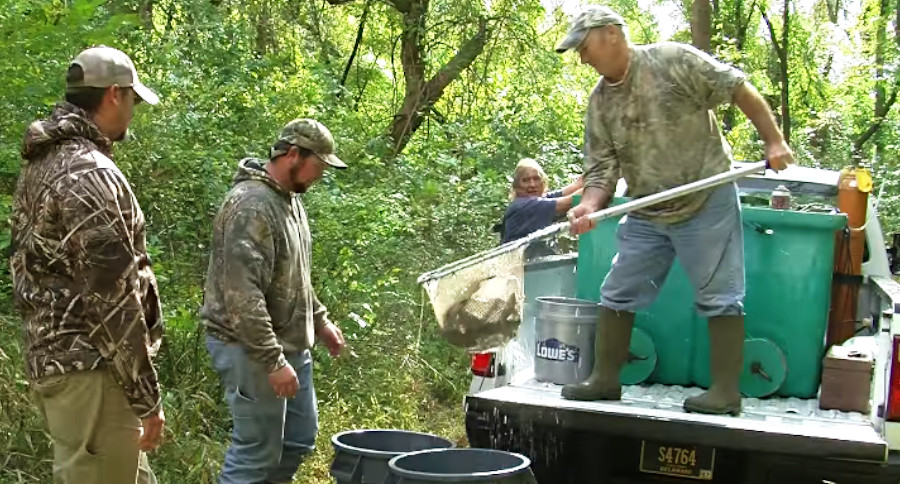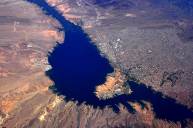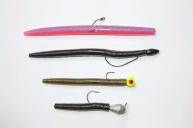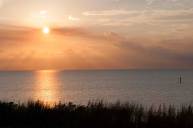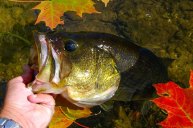How can you possibly make your fishing spot better?
It has taken years, but you have finally found the perfect fishing spot. Whether it is a 20,000-acre lake or a two-acre farm pond, this is it. The best fishing spot ever.
It can't possibly get better than this.
Or can it?
We have some ideas on how anglers can make their best fishing hotspots even better with relatively little effort on their part.
Sinking your own fish structure
For this first fishing tip, you're going to want to do some rule clarification ahead of time. Check with your state and province regulations and with any lake association or county rules BEFORE you sink anything in your favorite lake or reservoir. If it is legal, this is a fast and easy way control the best fishing locations on the lake!
There are many types of fish structure you can add to your chosen body of water. There are even companies that sell artificial ones. But you also can build your own using plans on the internet, or even better, by using recycled materials like tree limbs. One popular thing to do is to sink Christmas trees, which bluegill, sunfish and crappies love.
Again, make sure it is legal to do this ahead of time. Also make sure you're not creating a navigational hazard on a popular fishing lake by failing to sink the structure deep enough. If you can do it, sinking structure provides a great spot hidden on your favorite body of water that only you will know about.
Catch and release
This one is a little obvious, but letting more fish go means there are more fish to catch in any given body of water. Letting the big ones go means they'll have a better chance to reproduce.
The biggest fish likely have the strongest genes and are probably going to have more young that will make it to adulthood. That's why Florida-strain largemouth bass stocking is so popular. These fish grow huge and they pass their genetic material on to the next generation, creating a lake full of lunkers.
We know that sometimes it can be hard to practice catch and release with some tasty species like yellow perch and rainbow trout. We suggest keeping a good camera on hand in the boat and a ruler and scale too. This way, you won't NEED to keep the fish for proof that you "caught the big one."
Try to keep your harvests just over the legal size and let the bigger ones go to battle another day. After all, a dead fish can't grow any larger.
A selective cull
Speaking of catch and release, sometimes you must take fish out of your favorite spot to improve it.
Have you noticed the bass in your lake are all about the same size? Are some small bodied with big heads? It's likely the fish are a bit over-populated and that it's time to start harvesting some.
For bass fishermen, this can be akin to blasphemy. But sometimes it is necessary to promote growth. Stunting occurs when too many young fish survive and competition for food becomes fierce. If the fish can't find enough to eat, well, they're not going to grow.
While stunted waters are often great for action, they're terrible for size. Do your part by taking out your limit of legal-sized fish to help put the population back in balance.
It really does work. One of my uncles owned a large private pond for years. He hosted a fishing tournament where he invited friends and family every other year or so, and we'd cull out 20, 30, or sometimes more bass and bluegill and fry them all up. It worked; the pond consistently had a population of largemouth bass five pounds or larger and pike approaching 15 pounds. Not bad for southwest Michigan.
Picking up litter
One thing that annoys me is how some fishermen can proclaim to loving the outdoors so much at one moment, and then the next they're leaving their garbage all over the place. It's bad just about anywhere you go, but it's especially bad at public fishing spots. Discarded line, fish guts and heads, callously thrown out live bait containers. It's terrible. And sometimes, it can lead to a fishing spot being closed if you're not careful.
By doing your part and not only picking up your own litter, but cleaning up any you see, we can all make a difference in making our fishing spots cleaner and healthier for the fish. It may seem like a burden, but by doing a little bit each fishing trip as you're walking the launch from your boat to your truck or as you're headed to your shoreline spot, it can add up.
Even better, get your friends together and organize a clean-up with multiple anglers to help keep the waters clean. It's good publicity for the fishing community, and your spot will be much more enjoyable from fishing season to season.
Volunteering for your state agency
State wildlife agencies are almost always under-funded and short staffed. They need all the help they can get. It's worth checking with local game and fish to see if they need help improving things at your favorite lake or stream.
Some of the opportunities might involve some of the other things we've mentioned on this list, like sinking structure or cleaning up litter. Michigan once looked for volunteer "sturgeon guards" to help deter poachers.
But there are also some unique opportunities out there for anglers who want to make a big difference. For instance, it only took me a few minutes with Google to find a volunteer fish stocking assistant position available in Virginia. How cool would that be to help stock your favorite waters? It sounds like hard work, but not only are you helping improve the fishing there, but you get the satisfaction of having helped.
It's the ideal position for someone young looking to get into wildlife management or someone retired who just wants to give back.
Either way, you'll be helping improve the angling at your favorite fishing hole and that's something to be proud of.
For more outdoor content from Travis Smola, be sure to follow him on Twitter and check out his Geocaching and Outdoors with Travis Youtube channels.
NEXT: HOW TO MATCH YOURSELF WITH THE PERFECT INTERNATIONAL FISHING TRIP
WATCH
